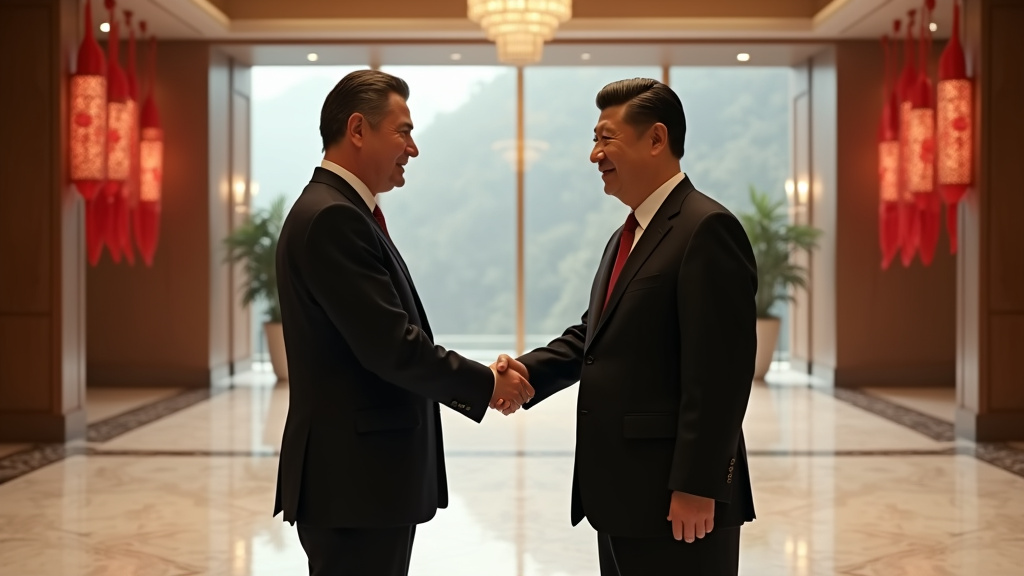London, UK – British Prime Minister Keir Starmer hosted French President Emmanuel Macron at 10 Downing Street in London on July 9, 2025, marking a central moment during President Macron’s three-day state visit to the United Kingdom. While the visit covers a range of bilateral issues, the political discussions were dominated by the persistent and challenging issue of undocumented immigration and the ongoing efforts to curb migrant crossings in the English Channel.
Migration Dominates High-Stakes Discussions
The meeting between the leaders placed significant emphasis on the UK’s determined push for stricter measures aimed at reducing the number of individuals making perilous journeys across the Channel in small boats. This issue has remained a major point of political focus and public debate in the UK, driving the government to seek innovative, albeit potentially controversial, solutions in cooperation with European partners.
The Proposed ‘One In, One Out’ Mechanism
A key proposal reportedly put forward by the UK during these discussions is the concept of a “one in, one out” agreement concerning asylum seekers. According to reporting from the domestic Press Association news agency, this proposed bilateral arrangement would involve Britain undertaking to return migrants who arrive on its shores via small boats back to the European continent. In a reciprocal element, the UK would, in turn, agree to accept asylum seekers currently in Europe who are deemed to have a demonstrable connection to the United Kingdom.
This mechanism, as reported, represents a significant departure from existing cooperation frameworks and signals the UK’s ambition to establish a more direct and immediate deterrent to illegal crossings. The proposal aims to create a formal pathway for returns while simultaneously demonstrating a willingness to engage in burden-sharing for individuals with specific ties to Britain.
France’s Stance and Call for EU Unity
However, the path to implementing such a bilateral agreement faces considerable diplomatic hurdles. France has previously articulated opposition to the idea of a standalone deal solely between London and Paris on this complex matter. The French position, as stated previously, has been that the UK should instead engage in negotiations covering migration and asylum with all member states of the European Union collectively.
This preference for an EU-wide approach reflects the interconnected nature of migration flows across the continent and the legal frameworks governing asylum within the Union. It underscores France’s view that addressing the Channel crossings effectively requires a coordinated response that acknowledges the responsibilities and legal obligations of multiple European nations.
Significant Resistance Within the EU
Reporting from London during the state visit indicates that the proposed “one in, one out” deal is encountering significant resistance from other European nations beyond France. This opposition is reportedly particularly pronounced among the EU’s frontline states – countries like Spain, Malta, Italy, Greece, and Cyprus. These nations bear a disproportionate burden of initial asylum applications due to their geographical location at the EU’s external borders.
The core reason for this substantial European resistance is rooted in existing EU law. Under current regulations, a country like France, upon receiving individuals transferred from the UK under such an agreement, could potentially be permitted to transfer those individuals back to their first country of entry within the European Union for the processing of their asylum claims. This prospect raises serious concerns for frontline states, fearing that a UK-France deal could inadvertently lead to an increased burden being placed back upon them, circumventing the principle that the first country of entry is generally responsible for processing asylum claims.
Navigating Legal and Political Complexities
The discussions at 10 Downing Street highlight the intricate legal and political landscape surrounding migration in Europe following the UK’s departure from the EU. Reaching a comprehensive agreement on managing undocumented immigration requires navigating not only bilateral interests but also the wider framework of EU asylum law and the diverse perspectives and pressures faced by individual member states, particularly those on the front lines of migration routes.
While the state visit provides a crucial platform for dialogue at the highest level, the reported resistance from key EU partners, driven by concerns over the implications of EU law, suggests that securing consensus on the UK’s proposed “one in, one out” mechanism remains a significant challenge. The outcome of these high-level talks on July 9, 2025, and the future of Anglo-French cooperation on migration will likely depend on finding a way to reconcile the UK’s objectives with the legal realities and shared responsibilities within the broader European context.





